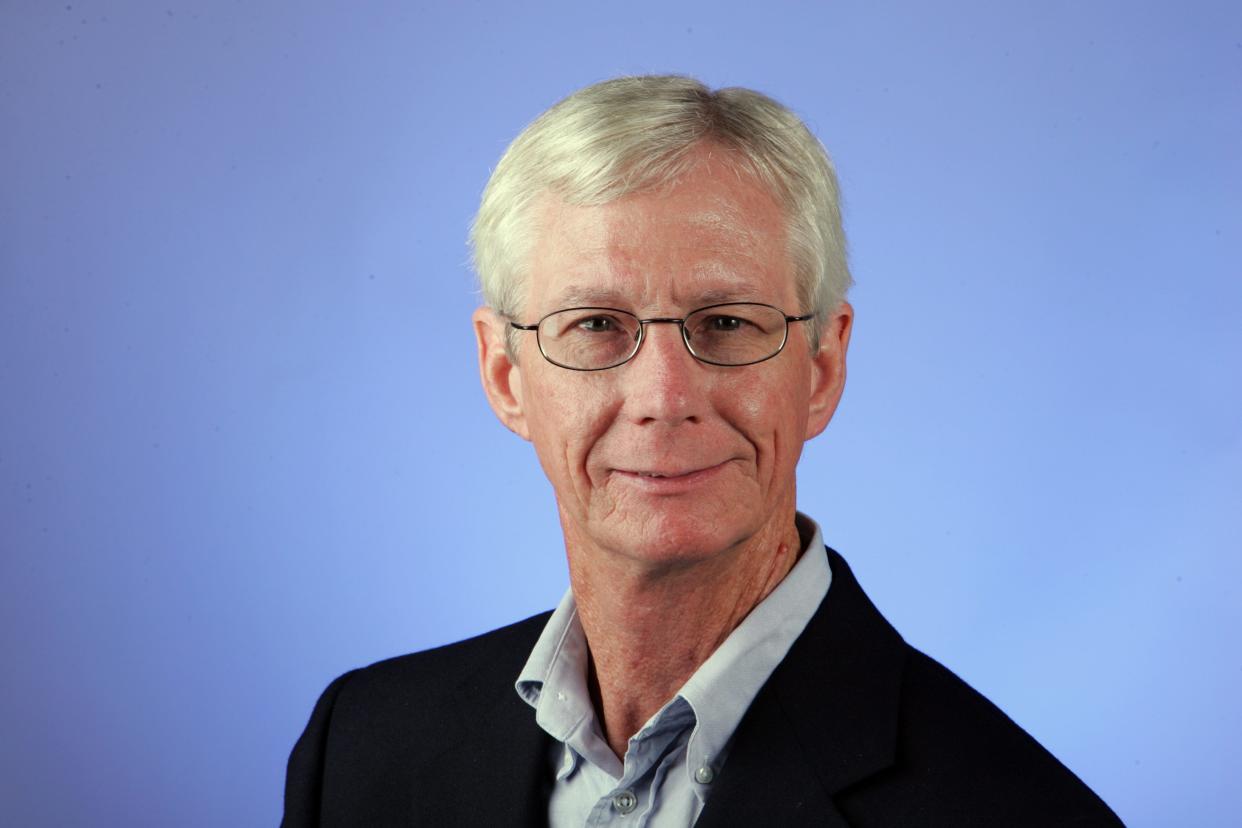Change the narrative: mass shootings are terrorism

Consider this scenario. Citizens of a foreign nation are dispersed into our streets and our schools and public places, opening fire with assault rifles, causing multiple fatalities and injuries. Even if these acts were spaced out over months and years, the outrage and the reaction would be swift and unanimous. We are under attack. There would be no barriers to action to redress the crisis.
One reason the problem of mass gun violence has proved so intractable is how it has been described by gun-rights proponents and the media. Until now, the narrative has been that acts of gun violence are crimes, carried out by criminals or by those with mental health issues. In the wake of the recent Nashville school shooting, U.S. Rep. Tim Burchett (R-Tenn.) said, “Criminals are going to be criminals.”
Law enforcement agencies and prosecutors (if there is a surviving defendant) deal with these situations with the tools available to them, as murders or assaults with a deadly weapon. The media, accustomed to covering crimes, follows along with this narrative, using criminal justice terms. It’s processed as a crime; it’s reported as a crime.
To describe the situation this way is to depict it as just part of everyday life, with responsibility falling to law enforcement, mental health counselors, or increasingly, by an armed public. In other words, there is no preventive remedy, only crimes addressed through remedial criminal justice avenues.
But these acts have threatened the fabric of society, so that people are fearful of conducting ordinary commerce, going to mass public events such as football games, or even sending their children to school. If an enemy were to succeed in planting doubt in the mind of the public that it cannot carry on normal activities, they would achieve the objective of weakening us. Without security, society cannot function.
Accordingly, we should no longer treat mass shootings like everyday crimes. Instead, they should be understood as acts of terror – as terrorism.
Of course, the perpetrators of the overwhelming majority of mass shootings over the past thirty years are not foreign agents or members of a shadowy foreign organization. They are individual American citizens. However, in case after case, their intentions are indistinguishable from, say, al-Qaeda. They are not spontaneous acts of revenge or targeted at individuals against whom they have a grudge. They are not carried out as part of a robbery. Rather, in many if not most cases, they are planned in advance and indiscriminate. Their intention is not to commit a crime but to kill as many people as possible, regardless of age, gender, or social status. Often, they are suicide missions. By any definition, this is terrorism.
When these acts are characterized as terrorism – carried out against the innocent, and in the case of children the most vulnerable members of society – then we are no longer talking about ordinary crime. Now we are dealing with a matter of national security.
By changing the narrative and the language used to describe the problem, this shifts the ground under the feet of elected officials and lobbyists and forces them to confront the problem as a crisis of national security rather than as a problem of ordinary crime. Politicians would have to defend any opposition to gun control as opposing “domestic tranquility,” as the Prologue to the Constitution has it. And it could compel the national news media to describe these deadly events as the crisis that it is.
In war against a nation-state, there would be retaliation, including strategies to disable the enemy’s weapons. In the case of the domestic terrorism of mass shootings, we do have the means of eliminating the weapons used to carry out these attacks, and the crisis demands that we use them. The objective should be clear – the elimination of all assault rifles and handguns in the hands of private citizens, even if this requires a constitutional amendment.
It is urgent that concerned organizations begin to change the narrative of mass shootings. These are acts of terrorism that have produced a national security crisis in America. Let’s call it what it is in order to muster the necessary public will to end mass violence by eliminating weapons of mass destruction.
Peace in our homes, peace in our schools, peace in our streets.
Cary McMullen is a retired journalist and the former religion editor of The Ledger.
This article originally appeared on The Ledger: Change the narrative: mass shootings are terrorism

